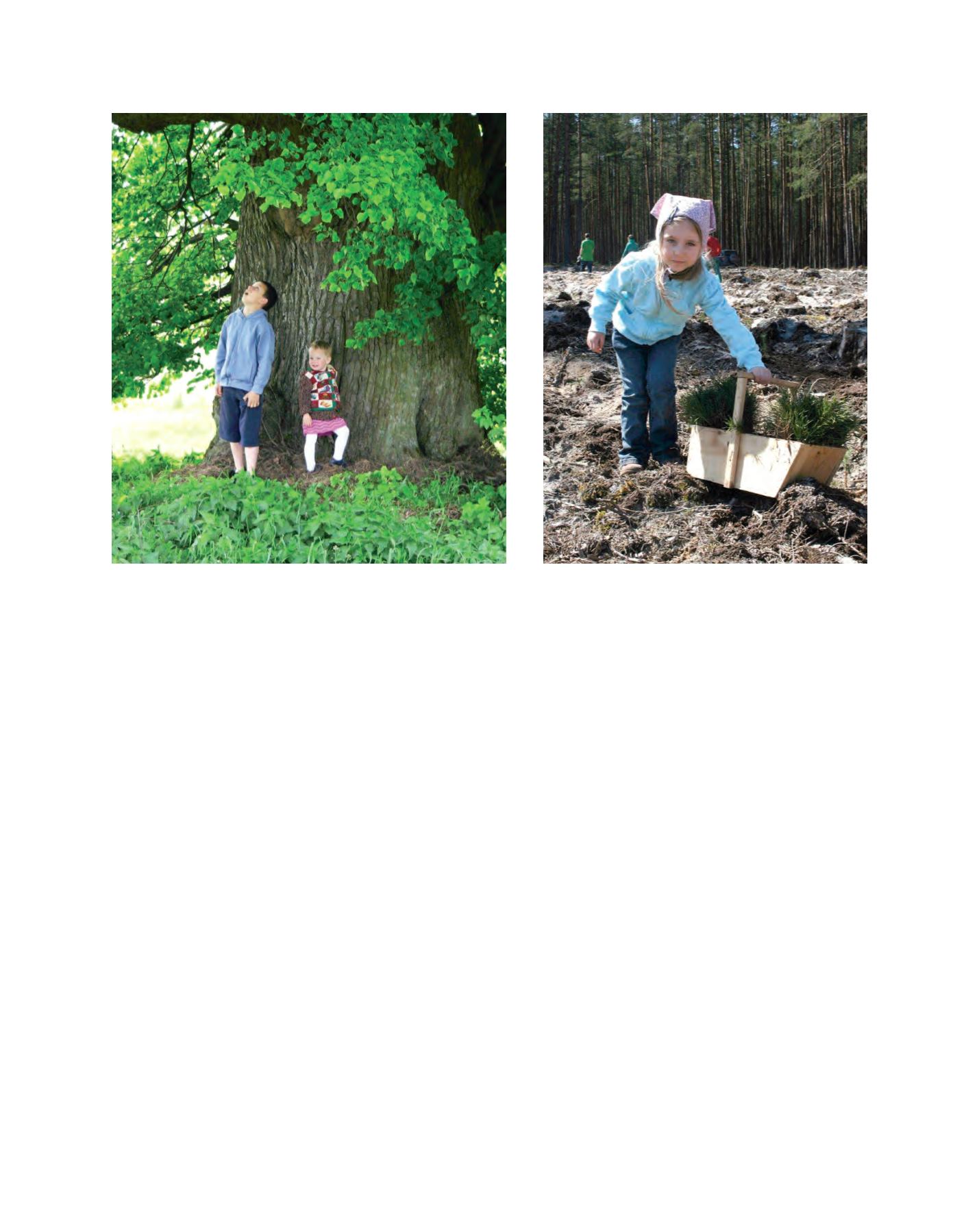

[
] 195
use forests for camping, sightseeing and relaxation. Seeking to
balance economic, ecological and social forest functions, foresters
have built more than 2,000 recreational objects in Lithuanian forests,
more than 200 of them adapted for the needs of physically disabled
visitors. This type of adaptation is a new phenomenon in Lithuanian
forests. Its main objectives are to contribute to the integration into
society of disabled people by allowing them to experience equal
access conditions with other members of society.
Benefits for private forest owners
Since 1991, the structure of forest ownership has changed consid-
erably. Land reform and restitution in the forest sector has seen a
shift from nearly 100 per cent of State owned forests to 38 per cent
private, 50 per cent State and 12 per cent forests reserved for resti-
tution. In Lithuania, private forest holdings are mostly small – the
forest estate average is 3.3 hectares – but the number of private
forest owners is considerable (almost 250,000).
Private forest owners and their families can get direct benefits from
forests, by disposing of property, using wood, picking wild mush-
rooms and berries or using forests for recreation. Forest owners can
harvest a limited amount of wood annually for their own purposes
(not exceeding an annual increment) without permission.
Benefits for people working in the forestry sector
Around 50,000 people work in the Lithuanian forest sector and wood
industry (about 6 per cent of total employment in the country). During
the last few decades in the State forest sector, the number of employees
has gradually reduced, mostly because of forest works undertaken by
private contractors, but there are still around 4,000 employees working
in the State forest sector. The welfare of these people depends directly
on forest production, as they receive payment and social
guarantees, and salaries in State forest enterprises are
higher than average for Lithuania.
Youth education (Young Forest Friends)
Young Forest Friends is an independent organization
that brings together children who are interested in
nature conservation, forestry, flora and fauna. The main
objectives of this organization are to:
• Develop the ability to recognize, protect and take
care of the forest’s flora and fauna
• Train children to monitor, investigate and analyse
phenomena in the forest
• Promote the forestry profession, fostering ethnic
traditions and customs
• Develop ecological habits within Lithuanian society
• Cooperate with similar organizations.
In the State forest enterprises, there are 356 clubs of
Young Forest Friends and currently the organization
unites more than five thousand youngsters. Together,
they are learning about forest growth principles and
sustainable forest management and forming strong rela-
tionships with local foresters.
Forests are a part of life from an early age for
Lithuanian people. Most of the population cannot
imagine life without the benefits provided by forests.
We believe that sustainable forest management will
save and even increase the benefits of the forests for
future generations.
Forests are a part of life from an early age for Lithuanian people
Children monitor, investigate and analyse forest phenomena
Image: Directorate General of State Forests
Image: Directorate General of State Forests
















